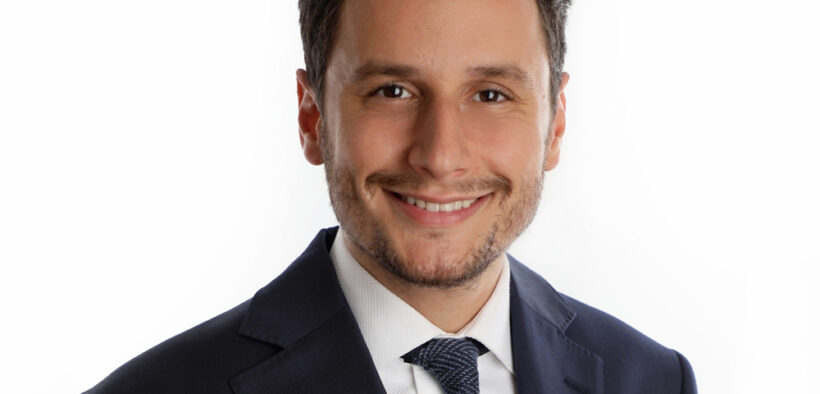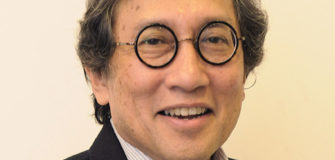The First Global Order: Ascertaining Canada’s Position

Last week, 21CQ and GB held a two-day conference to probe the state and future of Canada after the pandemic. Along with UBC’s Michael Byers, Université Laval’s Anessa Kimball, former senior advisor to Canada’s minister of foreign affairs Jocelyn Coulon, and the Munk School’s Anvesh Jain, I was one of the participants featured on the panel discussing Canada’s post-COVID international position.
Much of the conversation understandably centred on the impact of next week’s presidential election in the United States. If one interprets the Trump presidency as having catalyzed existing trends favouring the erosion of the post-Cold War international order, then it is possible to assume that a Biden presidency could buy Canada more time to re-evaluate the fundamentals of its foreign policy and prepare for the international order to come. However, this is a question of speed rather than substance. Regardless of which candidate is inaugurated next January, Canada will be forced to confront the realities of a changing world.
Since the launch of GB’s Geo-Blog section in the summer of 2019, I have used this space largely to dwell on the implications of several structural pressures that are shaping Canada’s international environment – including the return of great power rivalry, the gradual de-unipolarization of international politics, and the shift of the global geopolitical centre of gravity toward Eurasia. However, Canada must also reckon with certain conceptual pressures – secular trends rather than cyclical ones. On top of changing configurations of power within the plane of interstate relations, the substance of the plane itself is also transforming.
Evidently, international relations have been changing in myriad ways in recent decades, with the rise of non-state actors and the period of neoliberal globalization being among the factors most widely discussed. However, it is possible to identify two conceptual pressures that relate more directly to the decline of international cooperation being witnessed today: (1) the incompatibility of the liberal international order with a world framed by great power conflict and (2) the formation of the world’s first truly global order.
The multilateral fabric that has come to characterize the international order appears now to be in crisis, with the UN and WTO – the two global bodies most frequently associated with the “rules-based international order” – exhibiting pronounced elements of dysfunction. That said, the quasi-multipolarity that marks today’s fledgling era of great power competition is not necessarily incompatible with the notion of a rules-based order. It is entirely possible that the world will experience more fragmented and ad hoc forms of multilateralism over the coming decades, even in the absence of broader shared norms and values. However, the notion of a liberal international order – rooted in Western leadership and based on the universal spread of Western liberal norms – is manifestly incompatible with great power rivalry.
It is entirely possible that the world will experience more fragmented and ad hoc forms of multilateralism over the coming decades, even in the absence of broader shared norms and values. However, the notion of a liberal international order – rooted in Western leadership and based on the universal spread of Western liberal norms – is manifestly incompatible with great power rivalry.
In his opening remarks, Coulon noted that Canada has adopted a more dogmatic foreign policy discourse as the post-Cold War era has progressed – a pattern that has sustained itself under governments of different partisan stripes. It is not clear whether such discourse is an unintentional by-product of Washington’s emergence as the “new Rome”, or whether it was a conscious strategy by Ottawa to secure Canadian economic and security interests in a post-NAFTA context. In either case, the complex and multilayered patterns of multilateralism that are increasingly constitutive of the post-liberal world are incompatible with the unidimensional notion of a “new Rome”.
Just as the advent of universal sovereign statehood has gradually limited the reach of great powers and prevented the complete advent of a new Yalta-type order rooted in spheres of influence, so, too, can no single power unilaterally set the terms of international engagement. The term “unipolar moment” that defined the 1990s and early 2000s itself captures the fleeting nature of a liberal order that never fully entrenched itself on a global scale. Even if – as is entirely possible – demographic or political trends lead to a relative decline in Russian and Chinese power before the midpoint of the century, a renewed period of American pre-eminence will not necessarily be akin to the rebirth of the liberal order.
The return of great power rivalry marks the failure of post-Cold War attempts to render the Western-led liberal order synonymous with world order itself. Formal centre-periphery imperial relations, rigid superpower blocs and unipolar moments have now been superseded by the world’s first truly global order – one rooted in universal sovereignty, complex patterns of integration and overlapping political alignments. The non-uniform character of this order makes isolating any state – whether Russia, China or Iran – impossible. Globalization has become an autonomous process rather than a normative endeavour driven by the West.
The term “unipolar moment” that defined the 1990s and early 2000s itself captures the fleeting nature of a liberal order that never fully entrenched itself on a global scale. Even if – as is entirely possible – demographic or political trends lead to a relative decline in Russian and Chinese power before the midpoint of the century, a renewed period of American pre-eminence will not necessarily be akin to the rebirth of the liberal order.
The persistence of globalization as a force – despite its transformation and contradictions – demonstrates that elements of convergence have not entirely disappeared from the international order. A truly global order is not a purely multicultural one and the decline of liberal uniformity does not imply the absence of all normative agreement. At the same time, the fact that this global order is emerging following the Western failure to entrench a uniform set of liberal institutions, norms and values on a global scale guarantees a certain degree of conflict, contestation and uncertainty. Even if it is possible to identify the likely patterns of interaction between states and ascertain which powers will loom large over the next decade of world politics, the precise shape of the post-liberal order is yet to be determined.
Many have compared today’s era of hegemonic challenge, rising populism and technological progress to the interwar period or the lead up to WWI. Yet despite notable similarities, no historical comparison can prove entirely adequate. We are not witnessing a shifting balance of power within the confines of an established international order, but rather the formation of a new order altogether. This is the world that Canada will face regardless of who occupies the White House over the next four years.
Canada has enjoyed a period of unprecedented peace and prosperity for the past several decades, owing in large part to the fortification of a rules-based international framework. However, Ottawa would do well to remember that efforts to strengthen global multilateralism should not be aimed at saving the old order, but rather at regulating the pace of change during the interregnum and setting the terms of the new order. As the world’s leading powers continue to litigate whether this order should be rooted in a “new Rome” or a “new Yalta”, Canada can emerge stronger from this period of uncertainty by helping to fashion something in-between – or indeed something new entirely.





